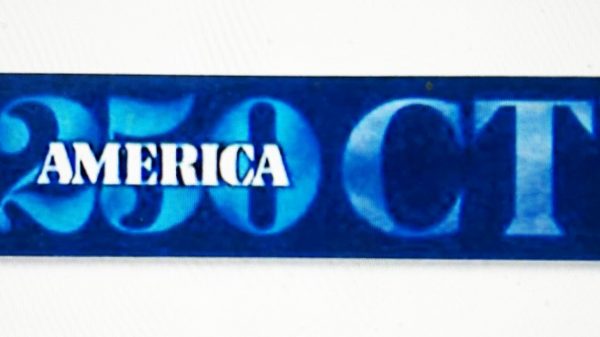KENT—Townspeople approved the $15,699,245 budget for 2024-25 Friday, May 17, but not without some sharp questioning and strong urging that money be drawn from undesignated surplus funds to help lower the increase in taxation.

The impact of the effective 9 percent increase on taxpayers was exacerbated by a recent property revaluation that pushed assessments up by 30 percent. Speaking as a community member, Lynn Mellis Worthington, who is also a selectman, said she had randomly chosen five properties and calculated the effect on their taxes. She found taxes would increase between 11.6 percent and 41 percent. “So, I urge the Board of Finance to use some of our undesignated surplus funds,” she said.
The town has $3.7 million in its undesignated general fund, an account that receives any monies not expended during the year. It is intended to be a cushion against any catastrophe that might befall the community during a year and is usually kept at a level that would cover two-and-a-half months of budgetary spending.
Town Treasurer Barbara Herbst explained that after the town reserves that amount, there would only be $458,000 left over. Board of Finance Chairman Nancy Odea-Wyrick said that would drop the tax rate by only a half mill.
In a Board of Finance meeting following the town meeting, members debated whether to use surplus funds or to let the full effect of the budget be felt. Odea-Wyrick said that in the past “there has been a practice to use some of the undesignated funds to hold the mill rate steady. I would not be comfortable using it to hold taxation steady to normalize it to previous years.”
Resident Chris Garrity joined her in that sentiment. He said he is all in favor of having the two-and-a-half month cushion but said that more than that is excessive and reflects town government “purchasing too much and not using it.” He believed that the tax rate should reflect what is needed to pay for the budgeted items and that future budgets should be groomed to remove any excess.
During the town meeting the selectmen had been closely questioned about line items, especially for sand and salt, where it appeared the budgeted amounts were out of line with the reality of what had been used.
Others felt the shock to taxpayers of the combined increase in property values and the budget increase might be too much. “We need to focus on what the tax bill will mean to taxpayers,” said finance member Jason Wright. He predicted that the biggest impact would be felt by owners of high-end properties.
“It’s a very different year,” said Worthington. “The revaluation was unusual. To have your Grand List go up 30 percent is unusual. I was shocked. I thought it would be much lower. We can’t look at this budget the same way.”
Herbst explained that while the selectmen’s budget bottom line showed an increase of 5.5 percent, when abatements were factored in the effective increase became 9 percent. The amount rose still further, to 10.41 percent, when all expenses were factored in for the municipal portion of the budget.
“Most of the towns in the state are having this conversation this year,” Odea-Wyrick said. “The cost of everything has gone up. Real estate has shot up, but workers are saying, ‘My wages are not going up this far.’”
In the end, the board voted to use $500,000 in undesignated funds to soften the blow and set a mill rate of 15.5.






























